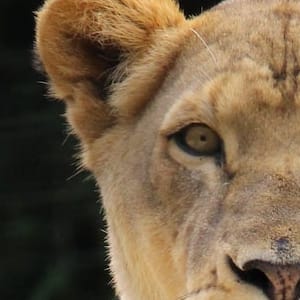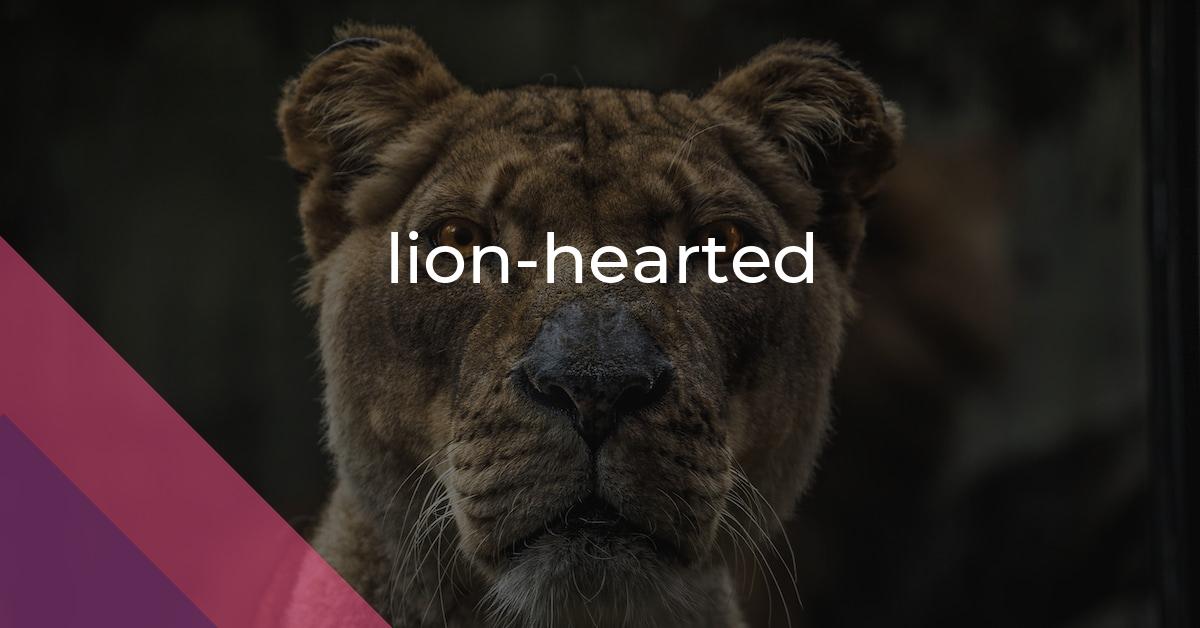lion-hearted: Idiom Meaning and Origin
What does ‘lion-hearted’ mean?
The idiom "lion-hearted" is used to describe someone who is brave, courageous, and fearless in the face of danger or adversity. It comes from the idea that a lion is the symbol of bravery and strength.

Idiom Explorer
The idiom "someone's heart is in" expresses strong dedication and passion towards something or someone.
The idiom "on the warpath" means to be angry, aggressive or ready to start a fight or confrontation.
The idiom "on the horns of a dilemma" means being in a difficult situation where one has to choose between two equally undesirable options.
The idiom "one's heart in one's mouth" means to be extremely anxious or fearful.
The idiom "old head on young shoulders" means that a person is wise, mature, or responsible beyond their years.
The idiom "of an" is used to emphasize a particular quality or characteristic of someone or something. It indicates that the quality being mentioned is extremely notable or outstanding.
The idiom "no guts, no glory" means that without taking risks or showing courage, there will be no chance for success or achieving greatness.
The idiom "nerves of steel" means being exceptionally calm and composed, especially in stressful or dangerous situations.
The idiom "man up" is used to encourage someone to be brave, tough, or resilient, often in the face of challenges or difficult situations, reflecting stereotypical masculine traits.
The idiom "made of sterner stuff" means someone is stronger or more resilient than others, able to withstand hardships or difficult situations. It suggests a person possesses a higher level of determination, courage, or endurance.
The Courageous Lion's Origin Unveiled
Lion-hearted is a term used to describe someone who is brave, courageous, and bold. The origin of this idiom is uncertain, but it has been used for centuries across different cultures. The lion, known as the "king of the jungle," represents strength and bravery. Combined with the word "hearted," which refers to a person's nature or character, lion-hearted signifies someone with the qualities of a lion, particularly their bravery and fearlessness.
The idiom lion-hearted has been used in various literary works, including the works of famous authors like Shakespeare and Scott. Its presence in English literature further highlights its significance and enduring appeal. Today, lion-hearted is often used metaphorically to describe individuals who display exceptional courage and fearlessness in the face of adversity. It is a way to praise and inspire others to be bold and resilient.
Lion-hearted can be used in a variety of contexts, from personal and professional achievements to acts of heroism. It characterizes individuals who show unwavering determination, resilience, and boldness. This idiom is a positive attribute and serves to commend and inspire others.
The origins of lion-hearted may be uncertain, but its continued usage and recognition in contemporary English attest to its enduring popularity. The idiom represents the timeless admiration for qualities such as bravery, courage, and fearlessness. It reflects the cultural significance of courage and the universal human need for bravery and resilience.
The idiom "lily-livered" is related to lion-hearted. While lion-hearted represents bravery and fearlessness, "lily-livered" refers to cowardice and lack of courage. The contrast between the two idioms highlights the importance and admiration for bravery and fearlessness in lion-hearted.
Another related idiom is "king of beasts," which also contributes to the understanding of lion-hearted. The lion is often referred to as the "king of beasts" due to its strength, power, and bravery. Lion-hearted takes inspiration from this association and signifies someone with the qualities of a lion, particularly their bravery and fearlessness.
The idiom "lion's den" is also associated with lion-hearted. A lion's den is a place where lions reside, often used metaphorically to represent a dangerous or challenging situation. Lion-hearted individuals display bravery and fearlessness even in the face of such difficult circumstances, just like a lion in its den.
"courage of one's convictions" is another idiom related to lion-hearted. It conveys the idea of having the bravery and determination to stand up for one's beliefs, even in the face of opposition or adversity. Lion-hearted individuals exhibit this kind of courage, firmly holding onto their convictions and displaying unwavering bravery.
The idiom "all heart" is also connected to lion-hearted. Both idioms emphasize the importance of bravery and fearlessness. Lion-hearted individuals are described as having the qualities of a lion, while "all heart" emphasizes the exceptional courage and determination displayed by such individuals.
Lion-hearted is an idiomatic expression used to describe individuals who are brave, courageous, and bold. The origins of this idiom are uncertain, but it has been used across different cultures for centuries. Lion-hearted takes inspiration from the lion, known as the "king of the jungle" and symbolizing strength and bravery. It signifies someone with the qualities of a lion, particularly their bravery and fearlessness. Related idioms such as "lily-livered," "king of beasts," "lion's den," "courage of one's convictions," and "all heart" further contribute to the understanding and appreciation of lion-hearted.
Example usage
Examples:
- Despite his fear of confrontation, John showed a lion-hearted determination when he stood up to the bully.
- Even though she had never driven before, Sarah drove the car with a lion-hearted bravery during the storm.
- Paula's lion-hearted leadership inspired her team to work tirelessly and never give up.
More "Courage" idioms



